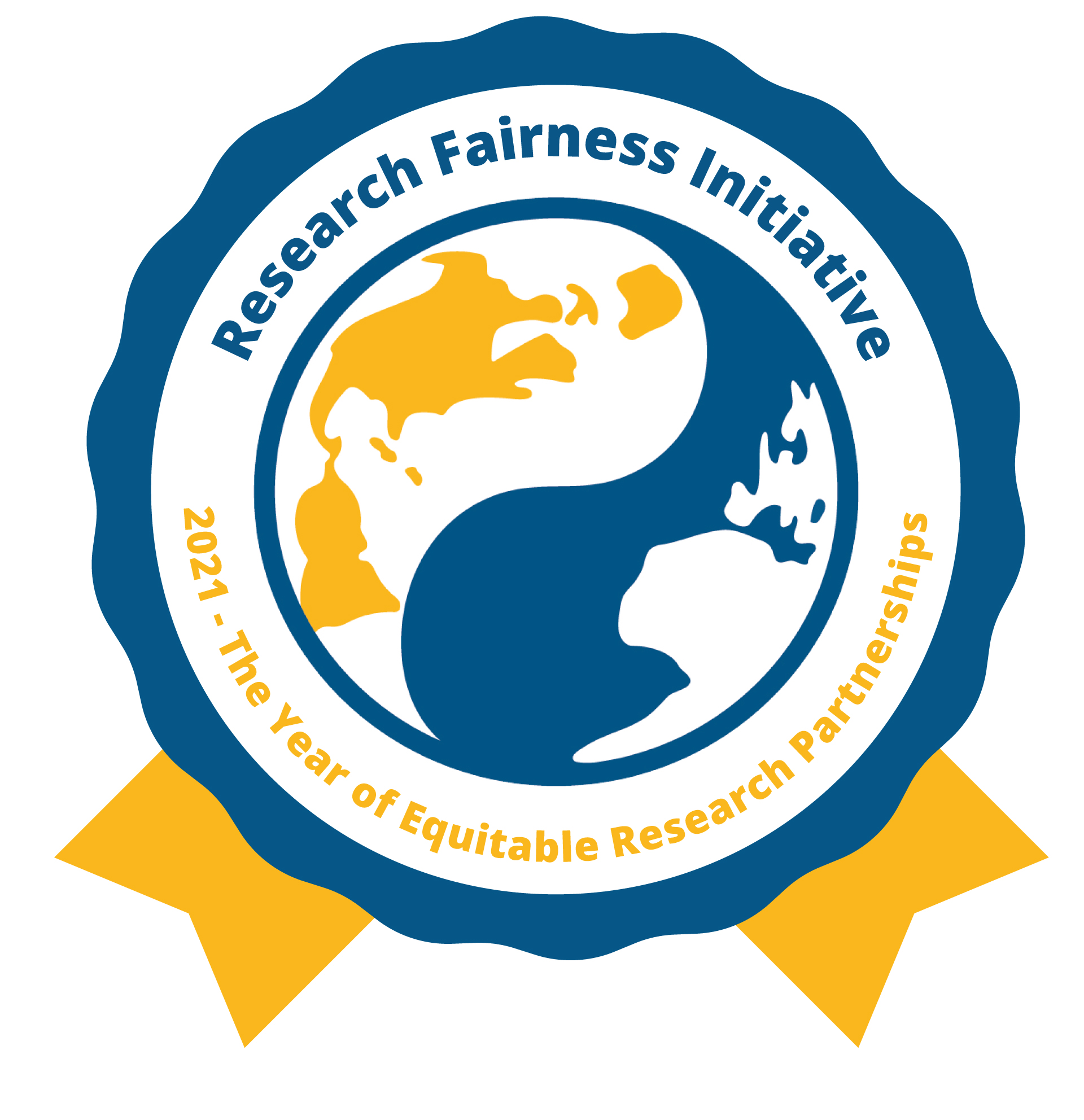
Close

Fair research partnerships that allow all partners to work together on a level playing field are an essential component of science collaboration if it is to have maximum impact.
The Covid-19 pandemic has highlighted this even more clearly, as collaborative work was the cornerstone for much of the research effort to develop vaccines and treatments for the virus, and to ensure equitable access to these innovations .
While partnerships are increasingly being recognized as an core component of research, significant gaps remain – specifically in partnerships between projects between teams in high-income and low-and middle-income countries. Here, very real problems persist in terms of the fairness and equitability of partnerships. Power imbalances related to research planning, implementation and inequitable sharing of benefits, costs and outcomes still appear to be a pervasive issue, despite the recognition that these problems exist.

The good news is that today many organisations are responding to the need for a fairer balance of power in north-south research relationships. They are pushing to increase the equity of collaborative research by developing clear principles, tools, guidance and initiatives that improve the quality of relationships between the institutions involved.
In 2021, we are calling for the principles of equitable partnerships to become a top priority for all stakeholders in the research-to-action pathway.
Here’s how you can help:
If you have any other suggestions for how we can spread the visibility and increase this drive towards fair and equitable research partnerships, please feel free to let us know at rfi@cohred.org.
To help drive these equitable partnerships we have identified a range of useful best practices by organisations around the world. The table below gives snapshot of groups who, like COHRED, are ‘walking the talk’ of equitable research partnerships by putting in place ways to progress toward this goal.
We invite you to have a look, to be inspired by these examples; and to take action in making fair research partnerships a reality in your region.
Centre for the AIDS Programme of Research in Southern Africa (CAPRISA)
RFI subscribers -Institutional Report in progress
UK Collaborative on Development Research (UKCDR)
UKCDR produced a report on how funders could support research partnerships to be more equitable: Finding and building effective and equitable research collaborations or partnerships. UKCDR has also set up a global cross-funder task force on equitable partnerships to move from principles to action, and better understand barriers and enablers to equitable partnerships.
Swiss Commission for Research Partnerships with Developing Countries (KFPE)
Follow:
Endorse:
University of Cape Town (UCT)
RFI Reporting institution – draft pending
Human Engagement Learning Platform (HELP) for Global Health
The Human Engagement Learning Platform (HELP) for Global Health is a team of researchers and consultants based at Emory University in Atlanta, GA, USA. We work to translate global health organizations’ ethical intentions into policy and practice through a suite of programs including stakeholder engagement, organizational learning and moral imagination.
HELP was recently awarded a Grand Challenges Explorations Grant by the Bill & Melinda Gates Foundation to explore whether global health campaigns that adopt the RFI also see improvements in their impact and effectiveness. As part of the study, we are currently working with COHRED to develop the Fair Partnerships by Design Virtual Workshop, which will help new and existing partnerships to:
Grand Challenges Explorations Announcement: https://gcgh.
World Association for Industrial and Technological Research Organisations (WAITRO)
We are currently setting up our new website on which we will have an extra section for our partners, including Research Fairness Initiative (RFI) where we will promote and inform about the resources and tools that RFI offers.
Association of Commonwealth Universities
The ACU is committed to supporting equitable research partnerships and has a page dedicated to their actions and mission around this topic:
https://www.acu.ac.uk/get-involved/how-the-acu-supports-equitable-partnerships/
University of Central Lancashire (UCLan)
Global Code of Conduct for Research in Resource-Poor Settings
Coming soon – a small e-module, gold open access, on the code funded by UCLan
Research Fairness Initiative
Fair Research Contracting
Institut de Recherche pour le Développement
Research Fairness Initiative
Fair Research Contracting
Special Programme for Research and Training In Tropical Diseases (TDR)
First Institution to produce an RFI report in 2018 – https://www.who.int/tdr/publications/year/2018/rfi-report/en/
Research Fairness Initiative
Fair Research Contracting
Working to Advance Science and Technology Education for African Women (WAAW) Foundation
Research Fairness Initiative
Fair Research Contracting
Philippine Council for Health Research and Development, Philippine Department of Science and Technology (PCHRD-DOST)
The DOST-PCHRD forges partnerships with researchers and institutions both locally and internationally to provide research-based solutions and innovations that will address the countrys health system needs.
Recent undertakings and accomplishments may be accessed through the 2020 PCHRD Annual Report: bit.ly/PCHRDAR20. It is also one of the implementing agencies of the Philippine National Health Research System (PNHRS) [https://www.healthresearch.ph/], which was recently cited by the World Health Organization (https://apps.who.int/iris/bitstream/handle/10665/331703/9789289054942-eng.pdf) as a comprehensive national strategy for health research. The PNHRS is the national framework and convergent strategy which aims to promote cooperation and integration of all health research efforts in the Philippines.
The PCHRD also developed and maintains the HERDIN PLUS which integrates the following platforms: HERDIN as a database of published health researches in the Philippines; the Project Management System which monitors ongoing health research activities in the country, including clinical trials; and the PNHRS Monitoring and Evaluation System which assesses the activities and performance of the 17 regional health research and development consortia to the PNHRS. All three platforms are accessible through the HERDIN PLUS, making it a one-stop health research information management platform.
Research Fairness Initiative
Fair Research Contracting
BIO Ventures for Global Health
· AAI November 2020 Newsletter focusing on our progress, programs, and partnerships through 2020.
· JCO Global Oncology article on AC3T
· BIO Century article on AAI and AC3T (February 2021)
· STAT News Article November 2018
· BVGH’s blog series: ”Disrupting the Emerging Cancer Crisis in Africa” – Part 1 and Part 2 (Part 3 coming in the future).
· AAI Annual Report 2019 (Our 2020 report will be coming out soon.)